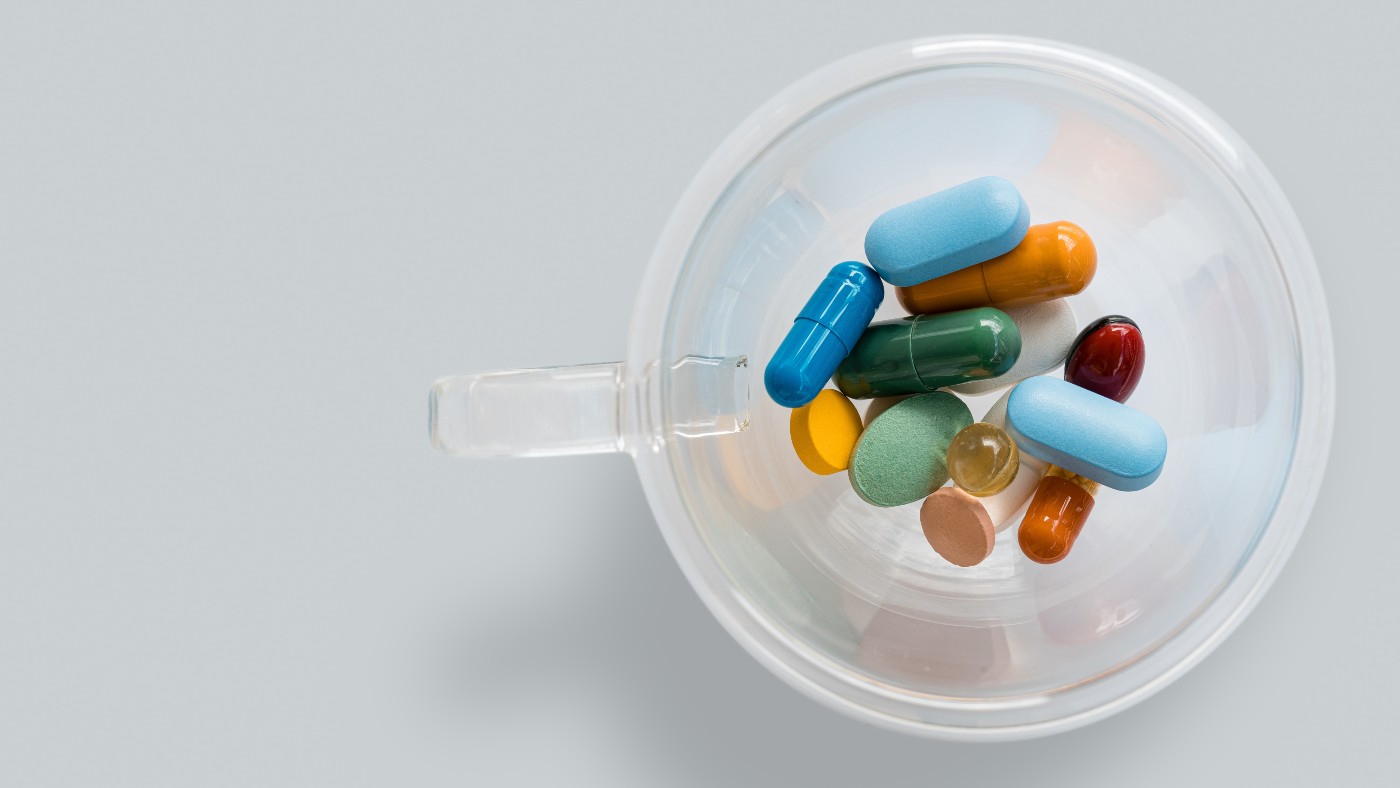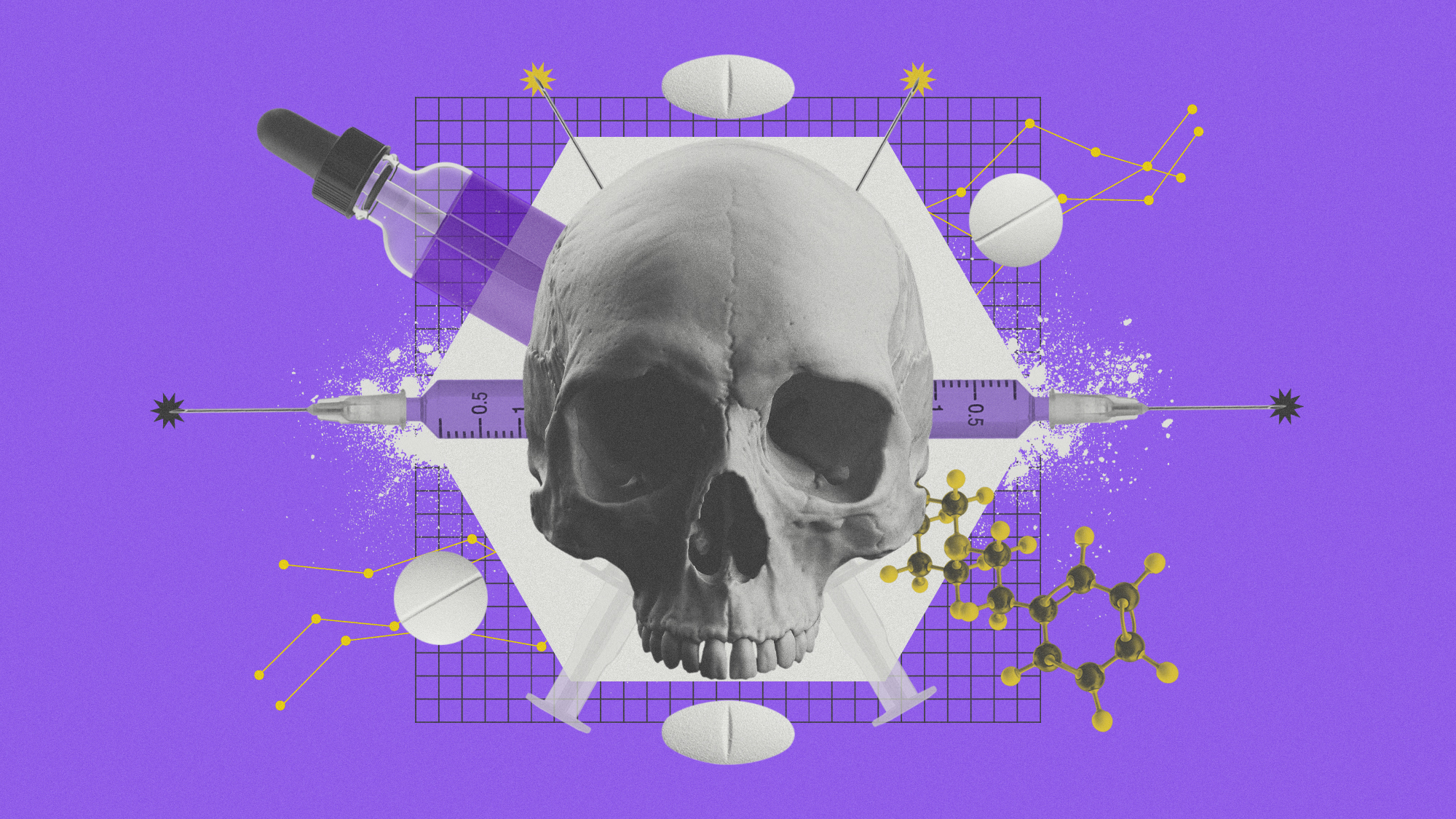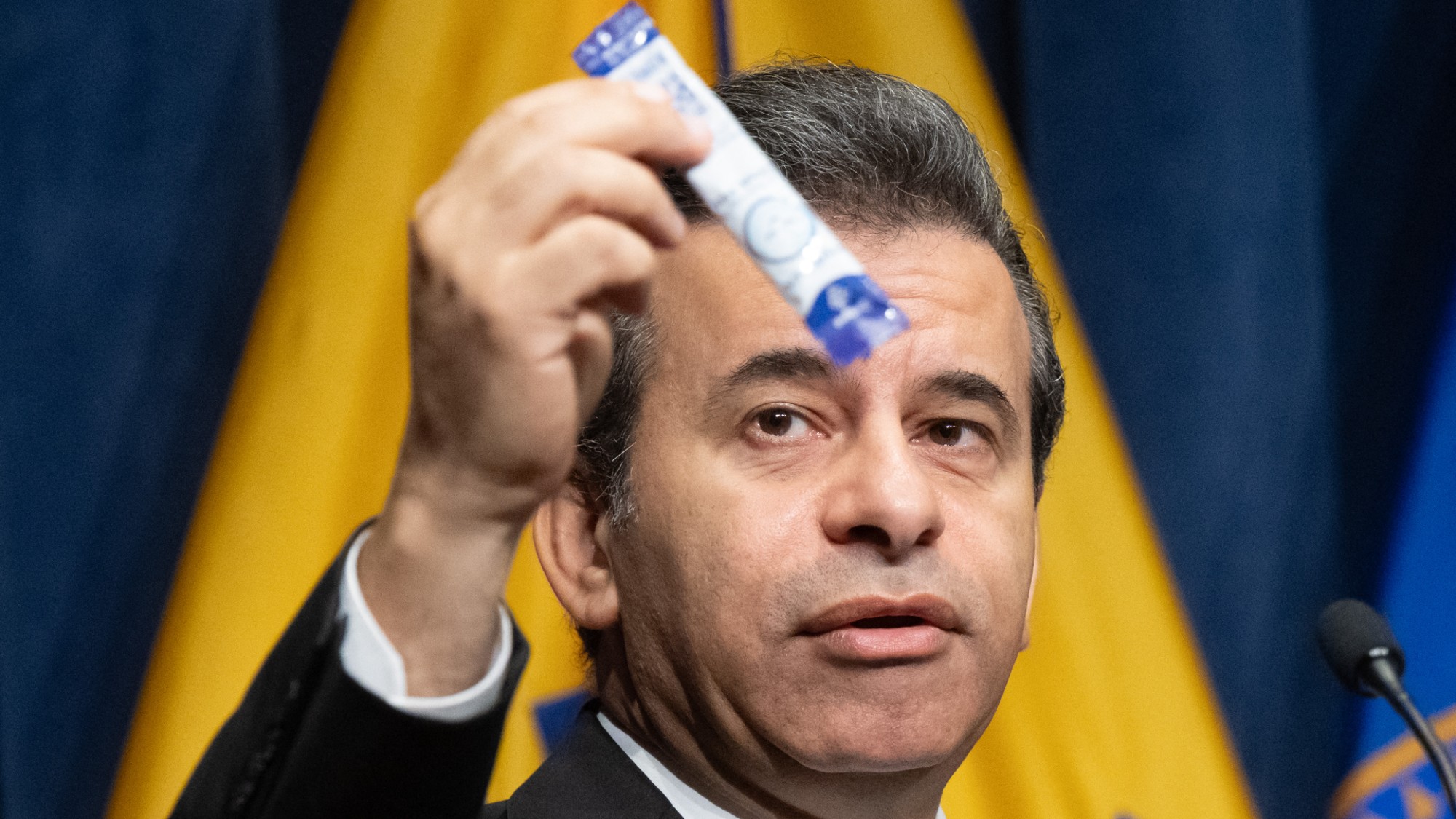Do antidepressants work?
New review advocates for a ‘more cautious prescribing practice’

A free daily email with the biggest news stories of the day – and the best features from TheWeek.com
You are now subscribed
Your newsletter sign-up was successful
Doctors should focus on prescribing antidepressants to people with “severe depression” rather than more moderate or mild symptoms, given uncertainties over their effectiveness, a new study has found.
The review, published in the British Medical Journal (BMJ)’s Drug and Therapeutics Bulletin, suggests a “more cautious prescribing practice – with antidepressants given to fewer patients, for shorter periods of time”.
The BMJ paper weighed up the uncertain evidence for the medication’s effectiveness with the possibility of “severe and long-lasting withdrawal symptoms” – including anxiety, insomnia, depression and changes to appetite – concluding that “widespread long-term use of antidepressants is probably inappropriate”.
The Week
Escape your echo chamber. Get the facts behind the news, plus analysis from multiple perspectives.

Sign up for The Week's Free Newsletters
From our morning news briefing to a weekly Good News Newsletter, get the best of The Week delivered directly to your inbox.
From our morning news briefing to a weekly Good News Newsletter, get the best of The Week delivered directly to your inbox.
The report could impact many of the 7.3 million British people who take antidepressants, equivalent to 17% of the adult population, according to Public Health England.
Studies ‘largely uninformative’
According to the study’s authors – training psychiatrist Mark Horowitz of University College London and pharmacist Michael Wilcock of Royal Cornwall Hospitals NHS Trust – much of our knowledge about how effective antidepressants are comes from placebo-controlled trials which last six to 12 weeks.
This creates a question mark over the medication as in the real world, people are often treated with antidepressants “for months or years”.
“These studies of six to 12 weeks’ duration are largely uninformative for the clinical treatment of depression”, the authors added.
A free daily email with the biggest news stories of the day – and the best features from TheWeek.com
No ‘significant effect’ on young people
The review also cited a recent study carried out by Cochrane, the British medical research charity, which found that “no antidepressant had a clinically significant effect compared with placebo” when trialled on young people.
This led the Cochrane study’s authors to question “whether they should be used [on young people] at all”, said Horowitz and Wilcock.
The authors added that in spite of this lack of evidence, “antidepressants are one of the most commonly used drugs by adolescent girls and the number of 12- to 17-year-olds prescribed antidepressants is increasing rapidly in some countries”.
New NHS guidance
This new paper isn’t the first to question the effectiveness of antidepressants; “for years, there has been discussion over whether they offer benefits”, wrote Fiona MacDonald, the CEO of Science Alert, an online publication focusing on scientific research.
Last month, new NHS guidance from the National Institute for Health and Care Excellence (Nice) said that doctors should offer patients with symptoms of mild depression options such as “meditation, mindfulness and talking therapies”, reported The Daily Telegraph.
The draft guidance, which is subject to consultation, advised medical professionals to “not routinely offer antidepressants as a first-line treatment, unless that is the person’s preference”.
The news caused a backlash, with some people who take antidepressants criticising the move.
“It feels like the life-changing impact of antidepressants is being diminished – like they’re something to be avoided,” wrote Emmie Harrison-West in Metro. “In essence, it’s adding to the stigma surrounding these key medicines.”
‘Hard decisions ahead’
There are certainly “lots of hard decisions ahead” regarding the future prescription of antidepressants, said Science Alert’s MacDonald, and certainly “more research is needed”.
But, “there’s mounting evidence that the way we currently use these common medications may not be the best”, she added, “and the more honest conversations we have now, the better care we can offer people with mental health concerns in future”.
-
 The ‘ravenous’ demand for Cornish minerals
The ‘ravenous’ demand for Cornish mineralsUnder the Radar Growing need for critical minerals to power tech has intensified ‘appetite’ for lithium, which could be a ‘huge boon’ for local economy
-
 Why are election experts taking Trump’s midterm threats seriously?
Why are election experts taking Trump’s midterm threats seriously?IN THE SPOTLIGHT As the president muses about polling place deployments and a centralized electoral system aimed at one-party control, lawmakers are taking this administration at its word
-
 ‘Restaurateurs have become millionaires’
‘Restaurateurs have become millionaires’Instant Opinion Opinion, comment and editorials of the day
-
 ‘Longevity fixation syndrome’: the allure of eternal youth
‘Longevity fixation syndrome’: the allure of eternal youthIn The Spotlight Obsession with beating biological clock identified as damaging new addiction
-
 A fentanyl vaccine may be on the horizon
A fentanyl vaccine may be on the horizonUnder the radar Taking a serious jab at the opioid epidemic
-
 RFK Jr. sets his sights on linking antidepressants to mass violence
RFK Jr. sets his sights on linking antidepressants to mass violenceThe Explainer The health secretary’s crusade to Make America Healthy Again has vital mental health medications on the agenda
-
 Nitazene is quietly increasing opioid deaths
Nitazene is quietly increasing opioid deathsThe explainer The drug is usually consumed accidentally
-
 Can TrumpRx really lower drug prices?
Can TrumpRx really lower drug prices?Today’s Big Question Pfizer’s deal with Trump sent drugmaker stocks higher
-
 The UK’s opioid crisis: why the stats don’t add up
The UK’s opioid crisis: why the stats don’t add upThe Explainer A new report has revealed that the UK’s total of opioid-related deaths could be much greater than official figures show
-
 The app tackling porn addiction
The app tackling porn addictionUnder the Radar Blending behavioural science with cutting-edge technology, Quittr is part of a growing abstinence movement among men focused on self-improvement
-
 Why the FDA wants to restrict kratom-related products
Why the FDA wants to restrict kratom-related productsIn the Spotlight The compound is currently sold across the United States